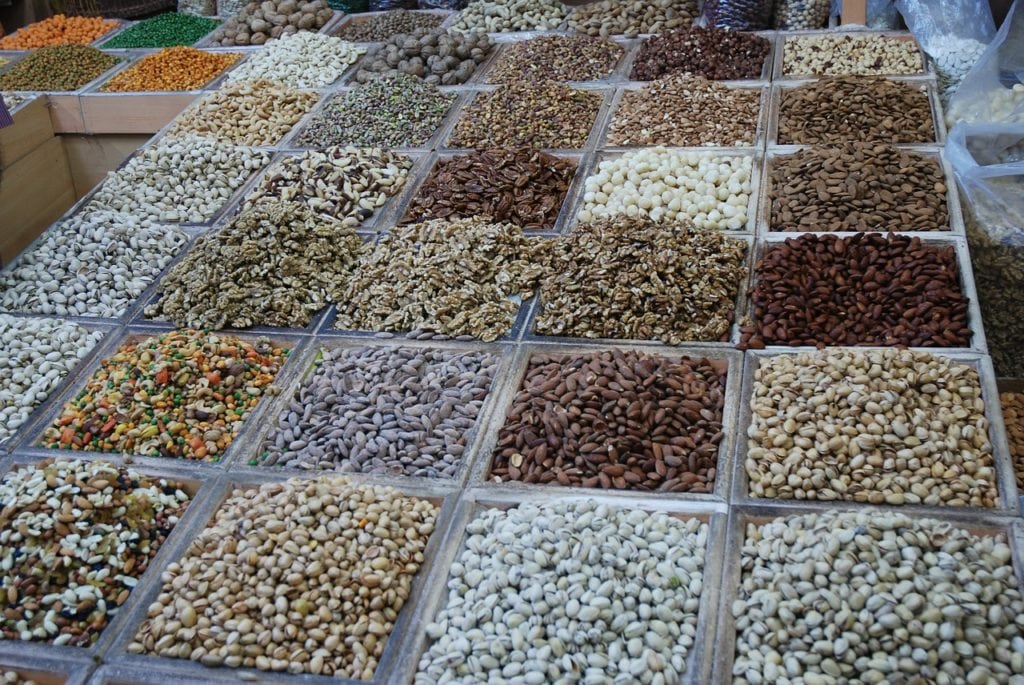
Legumes are a super product that is rich in calcium, iron, potassium, B vitamins, and also contains about a quarter of the protein from its weight and half of the recommended daily dose of dietary fiber for adults, all in one portion.
Beans can take a worthy place in the food pyramid, as a source of vegetable protein and a valuable food for weight loss. Not to mention the fact that the beans are easy to prepare, and available.
Legumes (such as soy, peas, chickpeas and lentils) have been grown and used in people’s food for centuries, in many cuisines of the world, for example: black beans occupy an important place in the cuisine of Central America and the Caribbean, chickpeas are an ingredient in the recipes of the Middle East, lentils are often found in Indian and Persian recipes, and white beans are an indispensable attribute of French and Italian cookbooks.
Even if legumes and are useful, but unfortunately they are not so massively used in people’s nutrition, but mostly they are used in a vegetarian diet.
Here are a few more reasons for you to love beans.
Here are a few more reasons for you to love beans.
- If you do not include beans or other beans in your diet, then you lose one of the best sources of vegetable protein. Beans contain protein. One cup of boiled string bean contains about 16 g of protein, about a quarter of what you need every day.
- Beans are an excellent source of many important nutrients, and studies show that they reduce the risk of cardiovascular disease, colon cancer, and possibly even diabetes.
- Beans are full of vitamins and minerals. Beans are a good source of minerals such as calcium, copper, zinc, iron, potassium and B vitamins, and folic acid.
- Beans contain impressively high levels of fiber (dietary fiber). They are a rich source of both soluble and insoluble fibers. Insoluble fiber helps with digestion.
- Beans stabilizes blood sugar levels. Soluble fibers in grains slow down the ingestion of glucose from food to blood. In this regard, your body produces less insulin, which not only protects you from diabetes, but also reduces the likelihood of subcutaneous fat formation due to blood sugar over-saturation.
- Beans protect the cardiovascular system. Scientific evidence is gathered that beans strengthen the health of the heart. In the course of the study, scientists found that consuming as little as 1/2 cup of bean per day helps to reduce the content of low density lipoproteins in healthy people
- Beans can reduce the risk of colon cancer. Increased consumption of beans can protect against the appearance of pre-cancerous polyps that can lead to colorectal cancer, one of the most common forms of cancer in the world.
If you compare beans and soy – what is better, the pros and cons?
Pros of beans: the main value is the combination of protein with sugars, starch, vitamins, amino acids and minerals. The protein content in the bean is about 20%, and the fat is less than 5%!
They also contain vitamins A, B, K, C, PP, carotene and antioxidant – vitamin E. Among the minerals contains phosphorus, calcium, iron, magnesium, sodium, potassium, iodine, sulfur.
The protein, which is part of the bean beans, resembles an animal protein and is second only to meat, it is very easily digested and contains all the amino acids necessary for a person: lysine, tyrosine, methionine, etc.
Cons of beans: Harmful substances contained in raw beans, interfere with the digestive tract, damage the intestinal mucosa, can sometimes cause poisoning.
Bean can be used only in stewed or boiled form, because it contains poisonous substances!
Pros of soy: one of the most important and useful components in soy is soy lecithin. Soybeans contain isoflavonoid, genistein and phytic acids. In soy: 40% protein, 20% fat and 20% carbohydrates.
Soy Minuses: Almost all Soya is a genetically modified product. Soybean phytoestrogens inhibit the production of male hormones in the male body, but are recommended to women after 30 years as an inhibitor of aging, but at the same time suppress the growth of brain cells.
Image credit: JaguarE
